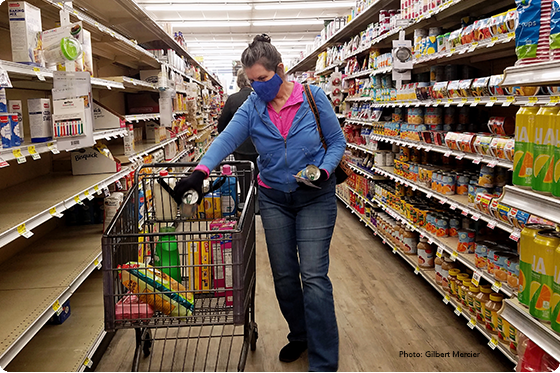
Anyone who has ever gone sky diving or bungee jumping has signed a form acknowledging that they are aware of the inherent risks of the sport. Even though no forms are signed, sport fans attending baseball and hockey games are accepting the risk that they might be struck by a baseball or hockey puck. Assumption of the risk is a major legal challenge that often faces individuals seeking damages for injuries sustained while engaged in risky activities.
Assumption of risk is an affirmative defense that defendants may raise that bars or limits an individual’s claim for damages for injuries sustained when he or she voluntarily exposed him or herself to a known danger. This defense will likely make frequent appearances in the forthcoming wave of COVID-19 litigation against businesses for alleged exposure during operations. Cruise ship companies, for example, recently asserted the defense for COVID-19 exposure lawsuits by claiming that the cruise ship passengers who participated in cruises during the global pandemic assumed the risk of coronavirus when they boarded the ship, and thus should not recover damages. The defense essentially prohibits a plaintiff from seeking damages on the grounds that the plaintiff knew of a dangerous condition and, nevertheless, voluntarily exposed herself to the condition.
Assumption of risk comes in three forms: (1) express assumption of risk, (2) primary assumption of risk, and (3) secondary assumption of risk. Express assumption of the risk requires an express agreement, either oral or written, by the plaintiff to accept a risk. Primary and secondary assumption of risk are based on implied acceptance of risk – as indicated by the plaintiff’s behavior.
Express assumption of risk arises from a written contract in which parties explicitly agree to release the business from the duty of care. Express assumption of risk agreements are analogous to COVID-19 liability waivers, in that parties that expressly signed the agreement will be unable to sue the defendant for COVID-19 exposure claims. If a business has worked with legal counsel to draft a COVID-19 liability waiver, an express assumption of risk agreement will likely be included in the document. For more information about liability waivers, please click here.
Primary assumption of risk exists when a plaintiff knowingly assumes well-known risks that are inherent in a particular situation. Primary assumption of risk differs from express agreements in that the plaintiff’s consent is implied from the act of electing to participate in the activity rather than by signing a contract. The doctrine of primary assumption of risk has most frequently been utilized in cases involving recreational sports and activities that have fundamentally dangerous aspects involved, such as horseback riding, skiing, and attending sport events. For example, spectators at a baseball game impliedly assume the risks of being hit by a baseball, therefore, the baseball field owes no duty of care, aside from providing minimal screening, to protect spectators from such risks. On the other hand, while the risk of being hit by a golf ball is an inherent risk of participating in golf, the risk of being struck by a golf cart is not. Inherent risks are those that are known, apparent, or reasonably foreseeable under the circumstances. Most courts do not allow businesses to assert the defense if they have engaged in gross, reckless, wanton, or intentional conduct.
Secondary assumption of risk applies when a plaintiff knowingly and implicitly assumes a risk created by the defendant’s negligence, rather than risks inherent to the situation. For secondary assumption of risk, the danger and risk created by the defendant’s breach of duty was known and apparent, however the plaintiff still voluntarily chose to encounter it. Secondary assumption of the risk will most likely be inapplicable to COVID-19 liability exposure claims because the majority of jurisdictions have abolished the defense and replaced it with contributory negligence.
Businesses that are sued for exposure claims but did not use an express assumption of risk liability waiver may nonetheless defend themselves from coronavirus-related claims by asserting primary assumption of risk. It is too early to tell how courts will evaluate such claims, but businesses are likely to raise the defense by asserting that customers implicitly assumed the well-known risks of contracting coronavirus when they entered the business and received its services. To succeed, businesses will have to show that the risk of COVID-19 exposure was inherent in the situation, rather than a risk created by the business’s negligence. Coronavirus exposure is most likely an inherent risk because it known and reasonably foreseeable when individuals enter public businesses. Business should review and implement all relevant federal, state, and local guidelines for cleaning, face coverings, and social distancing to avoid assertions of negligent conduct.
Furthermore, businesses will have to prove that the risks and dangers associated with COVID-19 virus are well-recognized and known risks to the public that were impliedly assumed by customers. Although courts have yet to rule on this issue, arguably a reasonable person today would likely comprehend and understand the magnitude of dangers affiliated with going into public during the coronavirus pandemic. Thus, customers that knowingly enter businesses despite the risks associated with coronavirus will most likely be held to implicitly consent to the risks of exposure.
If a customer sues a business for a COVID-19 exposure claim for acting with reckless, wanton, gross, or intentional conduct, however, then the defense will not be available. Examples of gross or reckless negligent conduct might be businesses that refuse to implement social distancing guidelines or allows their employees to continue working after showing COVID-19 symptoms or while waiting for test results. In such cases, courts may find that customers did not impliedly assume such risks of exposure, because those risks were not created by the virus but by the businesses’ gross negligence when it ignored CDC guidelines or continued to operate despite known positive COVID-19 cases in the work environment. Therefore, businesses must be cognizant of their employee’s health and behavior in order to avoid claims for gross or reckless conduct.












